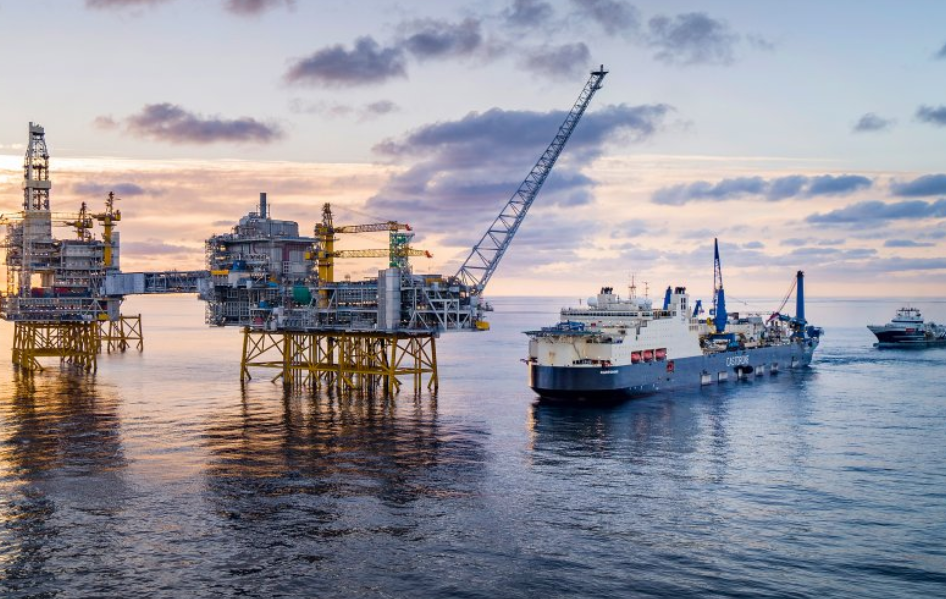Norway’s CO2 seabed storage project gets boost from industry, EU

Norway’s Equinor signed preliminary agreements on Thursday with seven potential industrial customers for its project to develop carbon dioxide storage under the North Sea, a crucial step towards securing state funding.
The project, called Northern Lights and led by Equinor in partnership with Shell and Total, is part of the country’s efforts to combat climate change.
Proponents of carbon capture and storage (CCS) say countries need the technology to help fulfil pledges made on the heels of the breakthrough Paris climate change agreement in 2015.
So far, Norway has spent 825 million Norwegian crowns to develop the full-scale CCS project
Environmentalists worry the costly CCS technology will perpetuate the fossil fuel status quo when rapid and deep cuts in energy use are needed to limit global warming.
The world’s leading metal producer ArcelorMittal, cement producer Heidelberg Cement, Sweden’s largest, privately-owned refiner Preem are among the firms who signed the memorandums of understanding (MoUs) on Thursday.
The Norwegian government said the industry’s commitment would be crucial for it to decide on whether to invest in the project, which aims at capturing and storing up to 5 million tonnes of CO2 from various industrial sites onshore.
“The signing of the MoUs are the right step in that direction,” Norway’s Oil and Energy Minister Kjell-Boerge Freiberg said at a press conference. “You’ve shown that a larger CCS network in Europe is possible.”
Preliminary estimates from 2016 showed it could cost between 7.2 billion Norwegian crowns ($801.7 million) to 12.6 billion crowns to establish a full CCS chain, including CO2 transportation by ships from two onshore sites in Norway, and the subsea storage.
So far, Norway has spent 825 million Norwegian crowns to develop the full-scale CCS project, which also involves building carbon capture facilities at onshore industrial sites in Norway.
London Protocol
“Nothern Lights… could become the world’s first cross-border CO2 storage,” Equinor’s Chief Executive Eldar Saetre told a news conference.
That, however, also depends on whether international laws can be amended to allow cross-border transport of CO2 for storage under the seabed.
An amendment exempting export of CO2 for storage purposes was agreed in 2009, but only six countries out of 52 signatories have ratified it so far
The so-called London Protocol, an international convention, bans its signatories from exporting waste to other countries for dumping or incineration at sea.
An amendment exempting export of CO2 for storage purposes was agreed in 2009, but only six countries out of 52 signatories, including Norway, Britain and the Netherlands, have ratified it so far. Ratification by two-thirds is required.
As a temporary solution, Norway and the Netherlands have proposed allowing the implementation of the amendment for those countries who had ratified it. The proposal is expected to be discussed at the meeting of London Protocol signatories in London in October, and requires a consensus to be approved.
“We are supporting that, and we will be proactive. The EU will spare no efforts in ratifying this amendment,” EU Climate Commissioner Miguel Arias Canete told a new conference during a visit to Oslo on Thursday.
($1 = 8.9810 Norwegian crowns)
(By Nerijus Adomaitis; Editing by Emelia Sithole-Matarise)
{{ commodity.name }}
{{ post.title }}
{{ post.date }}




Comments